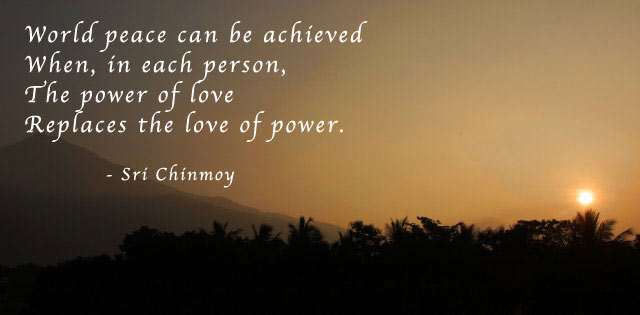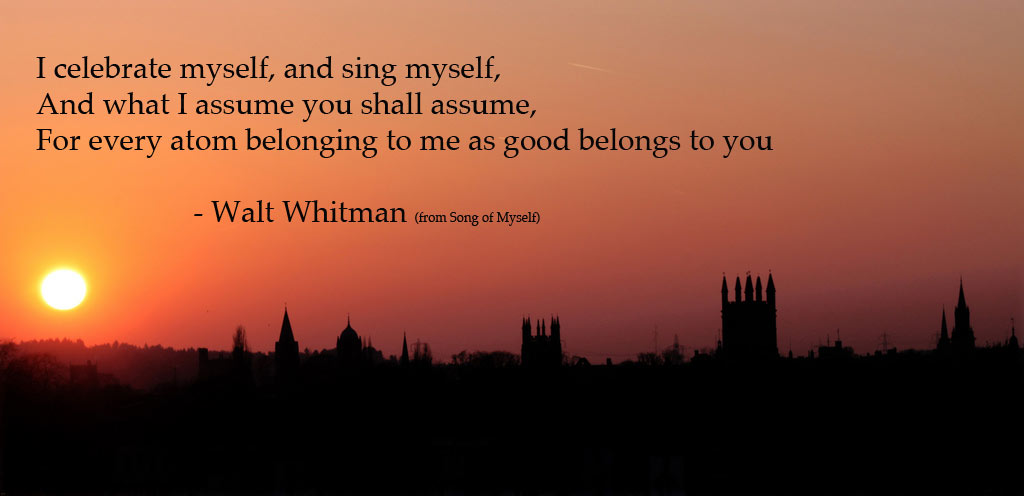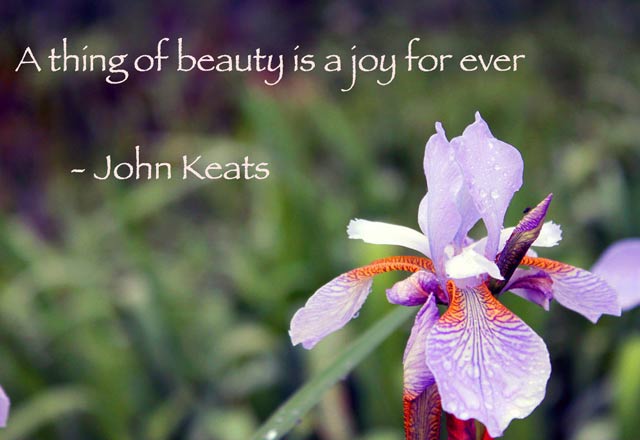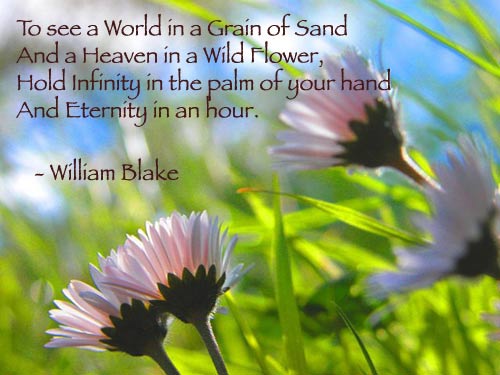Some inspirational ideas and quotes from the great Seer Poets can become like mantras. They invoke and explain powerful ideas with a poetic flow that touches the soul. These are a few quotes and ideas that have frequently inspired me. If you have any to share, kindly leave in comments.
Humility
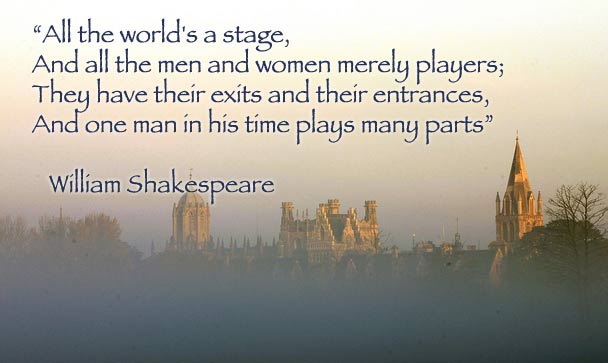
This famous monologue from Shakespeare’s ‘As You Like it’ eludes to the importance of humility. We may be proud of our current situation, but we can never take our fate for granted. It also infers the underlying oneness of experience. ‘We play many parts’ reminds us that we can experience life from any perspective. It is a reminder of the golden rule to love thy neighbour as thyself. As a part we play today, maybe very different tomorrow. It also makes me think of Mother Teresa’s quote:
‘In this life we cannot do great things. We can only do small things with great love.’
– Whatever our current ‘part’ maybe, the important thing is we do our part with love.
Love vs Power
(Photo: Unmesh)
The nature of the mind is to wish to exercise power. But, when we strive for power, peace disappears. If we replace the love of power, with the power of love, the world will be changed. It is our heart power that can bring peace and not the battle for supremacy.
 The Nature of Love
In human love there is often attachment and desire. We love, but there is a partial desire to benefit ourselves. The real divine love is unconditional. We love for love’s sake and are not influenced by outer circumstances. In real love, forgiveness comes spontaneously. There is no sense of sacrifice, only love.
The Nature of Self
Walt Whitman’s classic opening from ‘Song of Myself’ is a joyful reminder of our highest self – our real self. It is a reminder of the underlying oneness we have with creation. The Vedic Seers wrote many centuries ago that our inner nature is delight. This is an inspiration for us to grow from the little ‘I’ (ego) to the bigger I
Beauty
It feel superfluous to add to this momentous line from John Keats. An invocation of beauty and joy.
Heaven on Earth
Another epic of English poetry. A reminder heaven is in the eye of the beholder. If we can be aware and grateful of nature, we can see miracles everyday.
